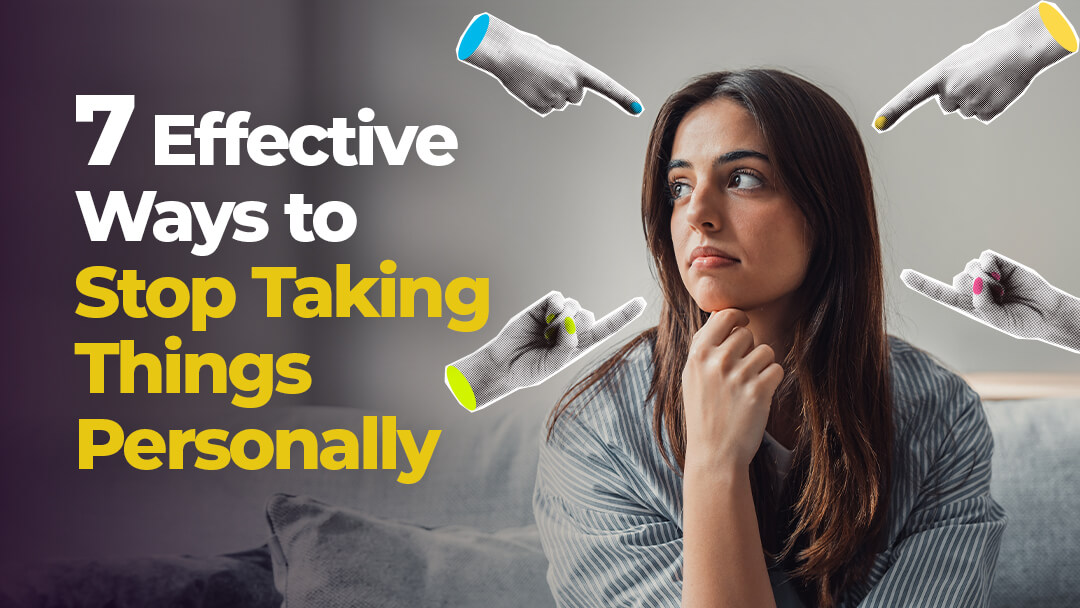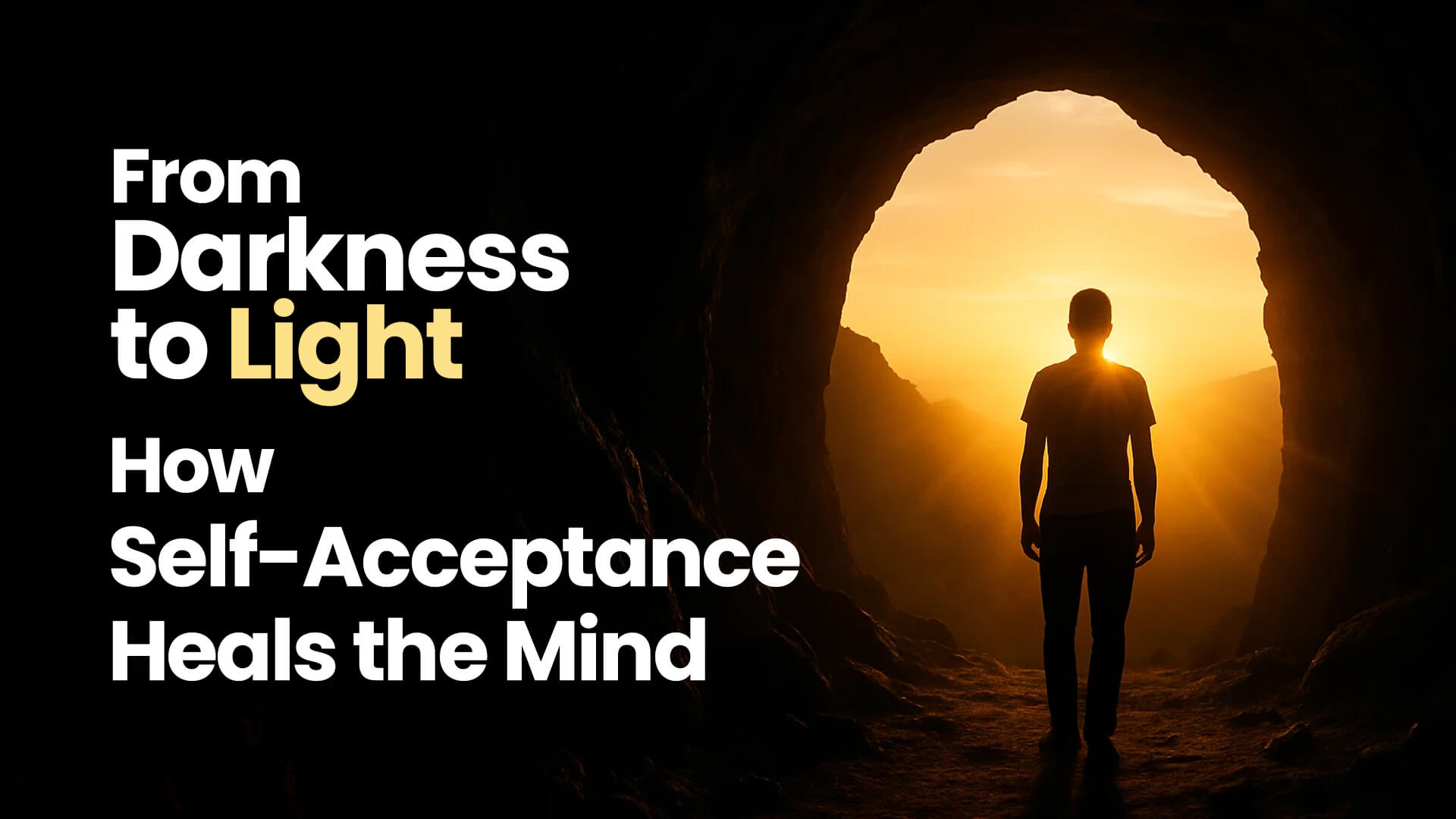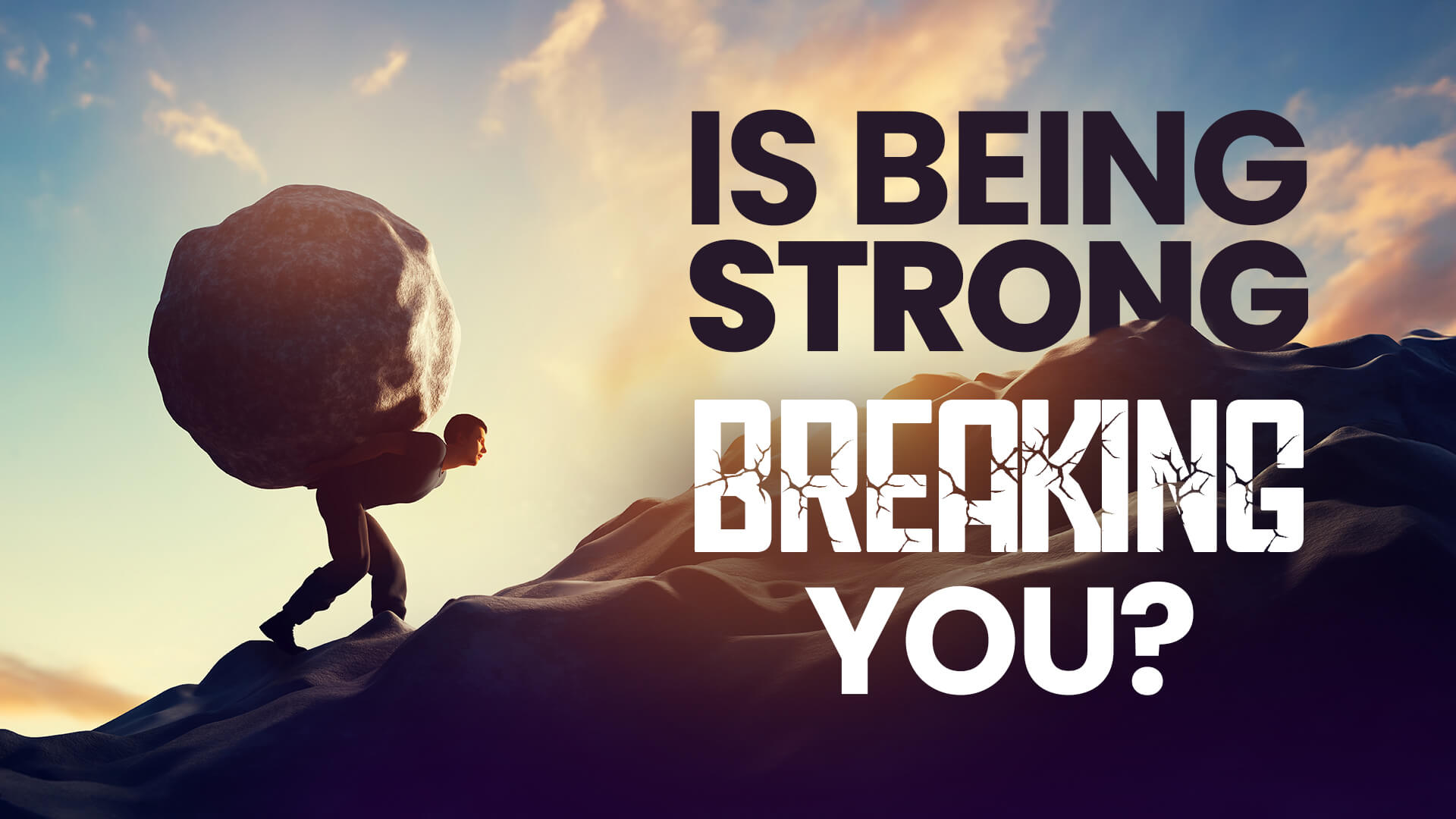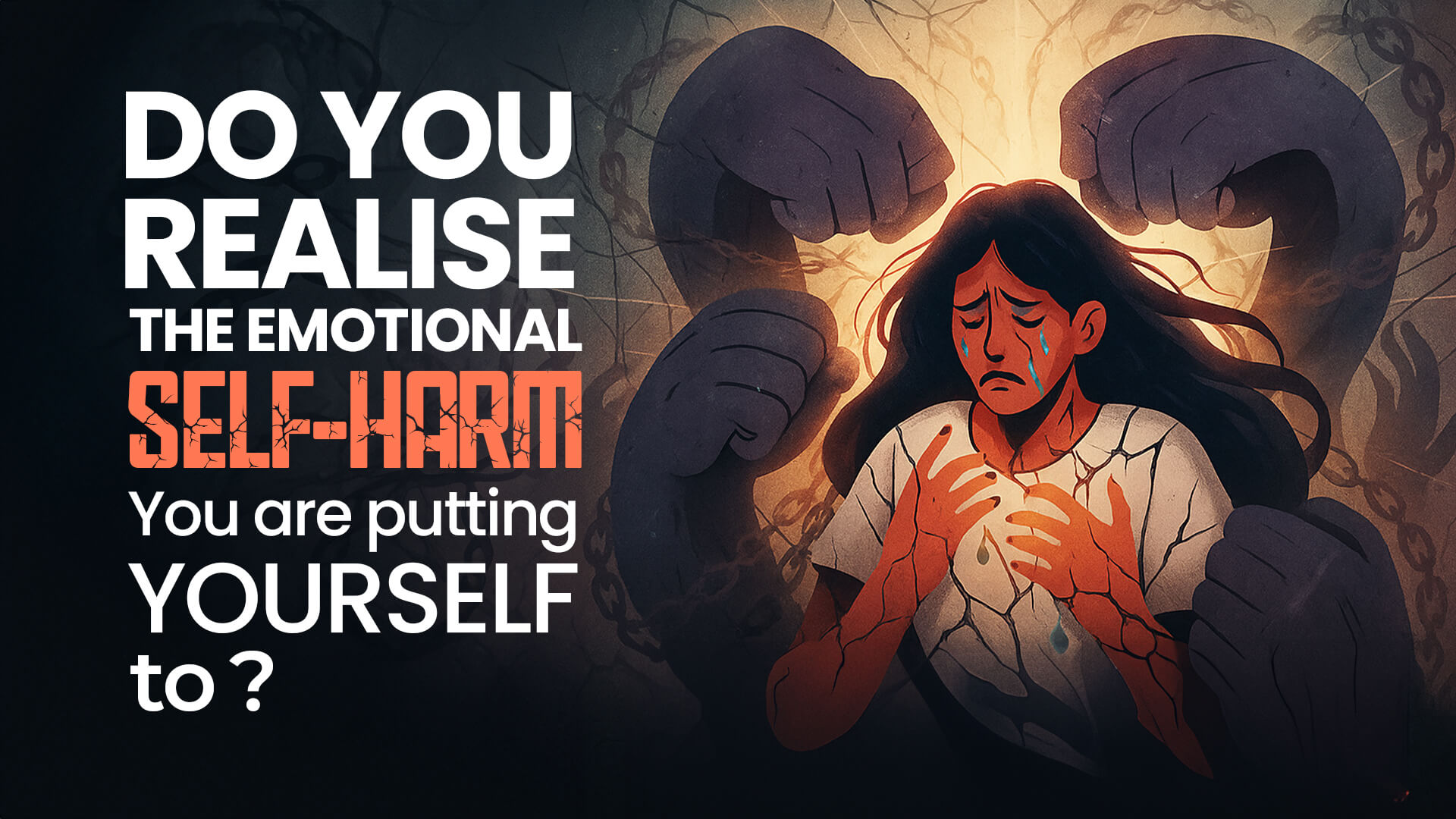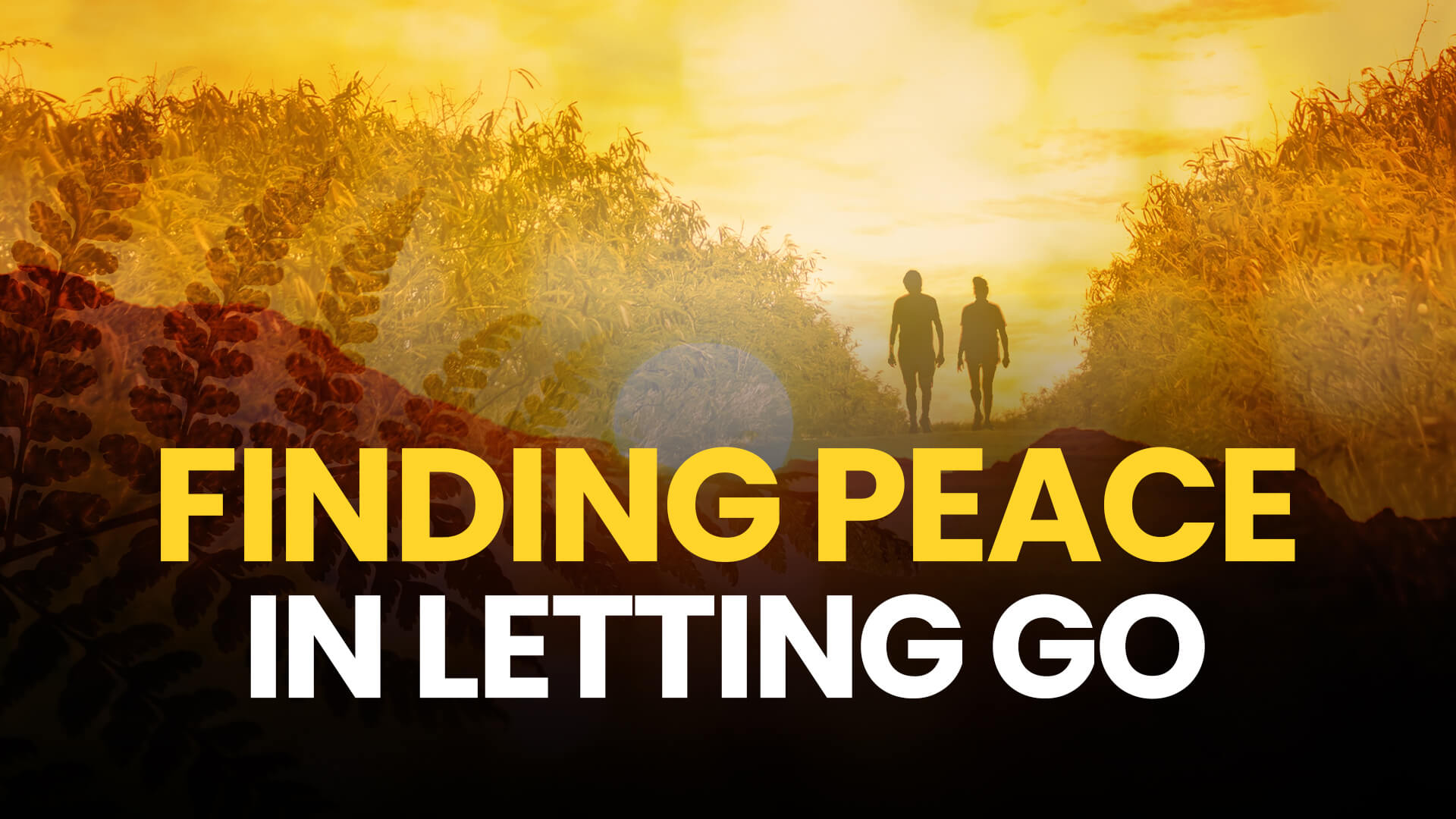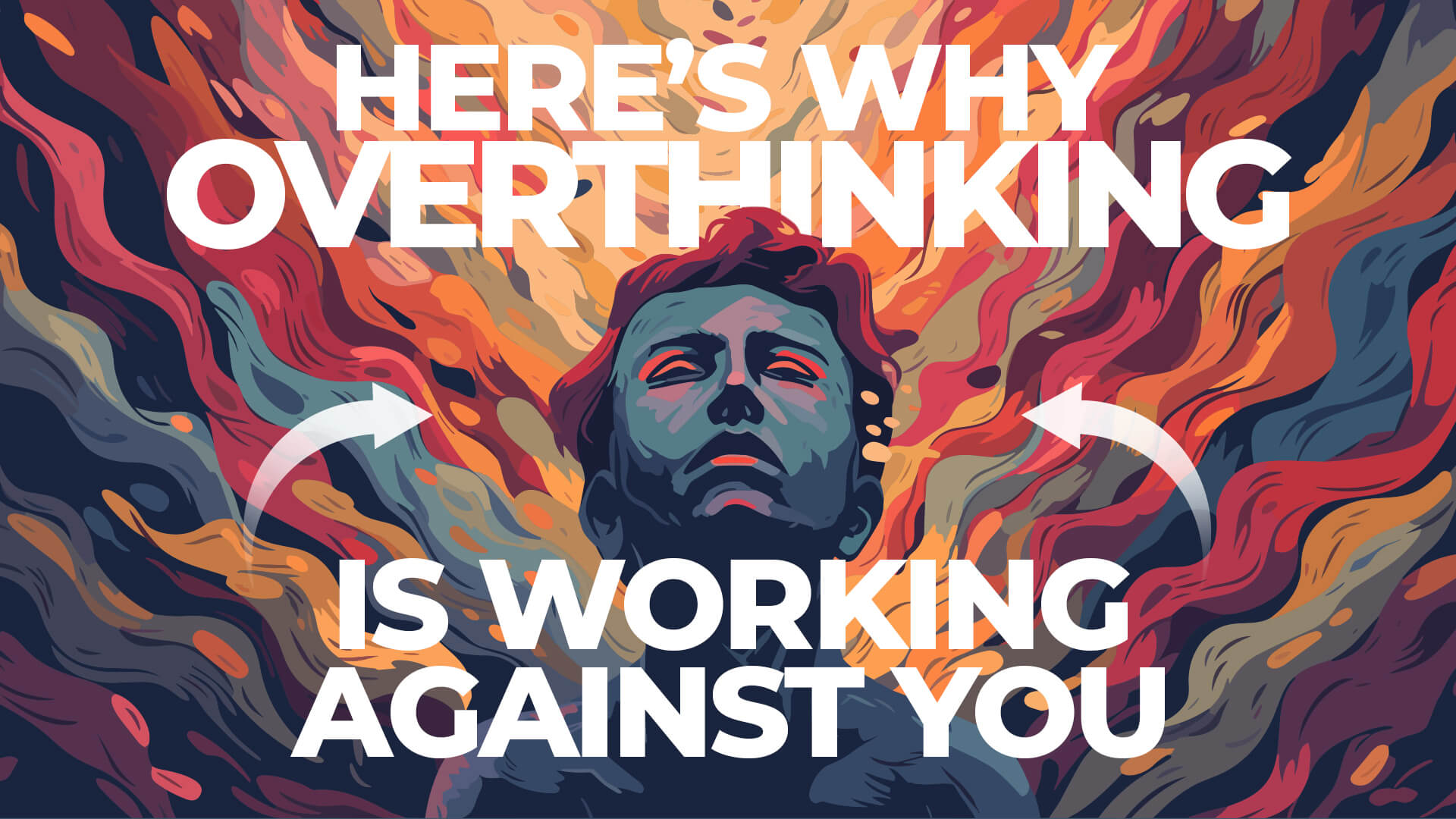Have you ever found yourself scrolling through social media or engaging in conversations, only to feel attacked or hurt by someone’s words? How do we navigate through a world filled with constant opinions, criticisms, and interactions without letting it affect our well-being? Can we truly develop the resilience to rise above these challenges and cultivate a sense of inner strength and peace?
These questions resonate with many of us in today’s society, where it often feels like we’re constantly bombarded with external judgments and sentiments. Join me as we explore the transformative power of detaching ourselves from these situations and forging a path to a healthier, more fulfilling existence.
Understanding the Root of Taking Things Personally
Before we can venture on a journey to stop taking things personally, it’s essential to understand the underlying reasons why we do so in the first place. Some of the key factors that contribute to this behavior include:
1. Ego and Self-Esteem
Our sense of self-worth and identity can be deeply intertwined with how we perceive others’ actions and words. When we feel threatened or criticized, our ego may interpret it as a personal attack, leading us to react defensively.
2. Sensitivity and Emotional Reactivity
Some individuals may be more sensitive or emotionally reactive than others, making them more prone to taking things personally. This can stem from past experiences, trauma, or a natural disposition.
3. Lack of Perspective
When we are emotionally invested in a situation, it can be challenging to step back and consider alternative perspectives or interpretations. This narrow focus can cause us to jump to conclusions and personalize the event.
4. Insecurity and Uncertainty
Individuals who struggle with self-doubt or a lack of confidence may be more likely to interpret external events as a reflection of their own inadequacies or flaws.
4 Negative Impacts of Taking Things Personally
Taking things personally can have a significant impact on our lives, both personally and professionally. Some of the common consequences include:
1. Strained Relationships
Repeatedly taking things personally can lead to misunderstandings, conflicts, and the breakdown of personal and professional relationships.
2. Heightened Emotional Distress
Internalizing external events can cause a range of negative emotions, such as anger, anxiety, depression, and a sense of victimization.
3. Diminished Productivity and Performance
When we are preoccupied with taking things personally, it can be challenging to focus on the task at hand, leading to decreased productivity and performance.
4. Missed Opportunities for Growth
By avoiding or misinterpreting feedback and criticism, we may miss out on valuable opportunities for personal and professional development.
A Roadmap to Stop Taking Things Personally
Overcoming the tendency to take things personally is a journey, but it is one that can lead to greater self-awareness, resilience, and overall well-being. Here’s a roadmap to help you on this transformative path:
- “The Subtle Art of Not Giving a F*ck” by Mark Manson
- “Radical Compassion” by Tara Brach
- “Emotional Intelligence 2.0” by Travis Bradberry and Jean Greaves
- “Self-Compassion” by Kristin Neff
- Taking a deep breath before responding
- Asking clarifying questions to understand the intent behind the criticism
- Focusing on the feedback rather than personalizing it
- Expressing gratitude for the feedback, even if it’s difficult to hear
- Encouraging them to practice self-awareness and perspective-taking
- Offering a non-judgmental listening ear and validating their feelings
- Suggesting resources, such as books or therapists, that can help them develop healthier coping strategies
- Modeling healthy boundaries and responses to challenging situations
1. Develop Self-Awareness
The first step in stopping the habit of taking things personally is to cultivate self-awareness. Pay attention to your thoughts, emotions, and bodily sensations when you feel triggered or defensive. Ask yourself, “Why am I reacting this way?” Examining the root causes can help you better understand your reactions and develop the ability to respond more constructively.
Expert Insight
“Self-awareness is the foundation for personal growth and transformation. When we can objectively observe our thoughts and emotions, we create the space to make conscious choices about how we respond to challenging situations.” – Dr. Lori Gottlieb, Psychotherapist and Author
2. Shift Your Perspective
One of the most effective ways to stop taking things personally is to shift your perspective. Instead of immediately assuming that a comment or action is a personal attack, consider alternative explanations. Ask yourself, “What else could this mean?” or “How might the other person be feeling or experiencing this situation?”
Key Statistic
A study published in the Journal of Personality and Social Psychology found that individuals who were able to consider multiple perspectives were less likely to take things personally and experience negative emotions in response to criticism.
3.Practice Emotional Regulation
Developing emotional regulation skills can be crucial in preventing the automatic personalization of events. When you feel yourself becoming emotionally reactive, take a deep breath, pause, and consciously choose how to respond. Utilize relaxation techniques, such as mindfulness or meditation, to help you maintain composure and respond with intention.
Expert Insight
“Emotional regulation is a key component of emotional intelligence. By learning to manage our emotional responses, we can prevent them from hijacking our rational decision-making and undermining our relationships.” – Daniel Goleman, Psychologist and Author of “Emotional Intelligence”
4.Reframe Your Self-Talk
The way we speak to ourselves can greatly influence our tendency to take things personally. Replace negative, self-critical thoughts with more empowering and compassionate self-talk. For example, instead of thinking, “They must think I’m incompetent,” you could reframe it as, “This is their perspective, but it doesn’t define my worth.”
Key Statistic
A study published in the Journal of Cognitive Psychotherapy found that individuals who engaged in more positive self-talk were less likely to experience depression, anxiety, and other negative emotional outcomes.
5. Cultivate Resilience
Developing resilience, the ability to bounce back from adversity is crucial in preventing the long-term impact of taking things personally. Practice self-compassion, seek support from trusted individuals, and focus on your personal growth and learning opportunities rather than dwelling on the negative.
Expert Insight
“Resilience is not about avoiding or overcoming challenges, but rather about our capacity to adapt and respond to them in a healthy and constructive way. It’s a skill that can be cultivated and strengthened over time.” – Dr. Eileen Kennedy-Moore, Psychologist and Author
6. Set Boundaries
In some cases, setting healthy boundaries may be necessary to prevent repeatedly taking things personally. This might involve limiting interactions with individuals who consistently trigger negative reactions or communicating your needs and preferences more clearly.
Key Statistic
A study published in the Journal of Personality and Social Psychology found that individuals who were able to establish and maintain appropriate boundaries were less likely to experience emotional exhaustion and burnout.
7. Seek Professional Support
If you find that your tendency to take things personally is significantly impacting your personal or professional life, consider seeking support from a mental health professional, such as a therapist or counselor. They can provide personalized guidance and help you develop more effective coping strategies.
Expert Insight
“Working with a therapist can be a transformative experience in learning to stop taking things personally. They can help you uncover the underlying beliefs and experiences that contribute to this behavior and guide you towards more empowering ways of responding.” – Dr. Marisa Franco, Psychologist and Author
Case Study: Overcoming a Tendency to Take Things Personally
Name: Kanika Occupation: Marketing Manager
Kanika, a marketing manager at a mid-sized agency, had always struggled with taking things personally. She would often feel defensive when her boss or colleagues provided feedback on her work, interpreting it as a personal attack on her abilities. This pattern of behavior led to strained relationships missed opportunities for growth, and a general sense of anxiety and stress.
After recognizing the negative impact this was having on her career and well-being, Kanika decided to take action. She started by working with a therapist to explore the root causes of her tendency to take things personally, which revealed deep-seated insecurities and a strong attachment to her self-worth being tied to her professional performance.
Through the guidance of her therapist, Kanika began to cultivate self-awareness and shift her perspective. She learned to pause and consider alternative explanations before reacting and to reframe her self-talk to be more compassionate and empowering.
Gradually, she developed a greater sense of resilience and the ability to view feedback and criticism as opportunities for growth rather than personal attacks.
Within six months, Kanika noticed a significant improvement in her relationships with her boss and colleagues. She was able to engage in constructive discussions about her work without becoming defensive, and she actively sought out feedback, knowing it would help her to improve.
The change in her mindset and behavior also had a positive impact on her overall well-being, as she experienced reduced stress and a greater sense of job satisfaction.
Kanika’s journey illustrates the transformative power of developing the ability to stop taking things personally.
By addressing the underlying issues, cultivating self-awareness, and implementing effective coping strategies, she was able to navigate challenging situations with more resilience and grace, ultimately enhancing both her professional and personal life.
Recommended Reading
To further your understanding and implementation of these strategies, consider the following book recommendations:
The Final Note
Taking things personally is a common and understandable human tendency, but it can also be a significant barrier to personal growth, healthy relationships, and overall well-being. By developing self-awareness, shifting our perspective, regulating our emotions, and cultivating resilience, we can learn to respond to challenging situations with more grace and equanimity.
Remember, the journey to stop taking things personally is a continuous process, but the benefits it can bring to your life are invaluable. Welcome the opportunities for learning and transformation, and don’t be afraid to seek support when needed. With dedication and practice, you can develop the skills to navigate life’s ups and downs with greater ease and inner peace.
Are you ready to venture on a journey to stop taking things personally? At Gateway of Healing, we are dedicated to helping individuals cultivate greater self-awareness, emotional intelligence, and resilience.
Contact us today to learn more about our coaching and counseling services, and take the first step towards a more fulfilling and empowered life.
FAQs
Q: How can I tell if I’m taking things too personally?
A: Some signs that you may be taking things personally include feeling overly defensive or emotional in response to feedback or criticism, avoiding or withdrawing from certain interactions, and a persistent sense of being misunderstood or undervalued.
Q: What are some practical tips for responding to criticism without taking it personally?
A: Some practical tips include:
Q: Can a tendency to take things personally be a sign of deeper psychological issues?
A: Yes, in some cases, a strong tendency to take things personally can be a symptom of deeper psychological issues, such as low self-esteem, anxiety, or past trauma. If this pattern is significantly impacting your life, seeking support from a mental health professional may be beneficial.
Q: How can I help a friend or family member who struggles with taking things personally?
A: You can support a loved one by:
Q: Is it possible to completely stop taking things personally, or is it a lifelong process?
A: Completely eliminating the tendency to take things personally may not be realistic, as it’s a deeply ingrained human behavior. However, with consistent practice and a commitment to personal growth, it is possible to significantly reduce the frequency and intensity of these reactions. For most people, it’s an ongoing process of self-awareness, skill-building, and conscious choice-making.
Reach Dr. Chandni’s support team at +918800006786 and book an appointment.
